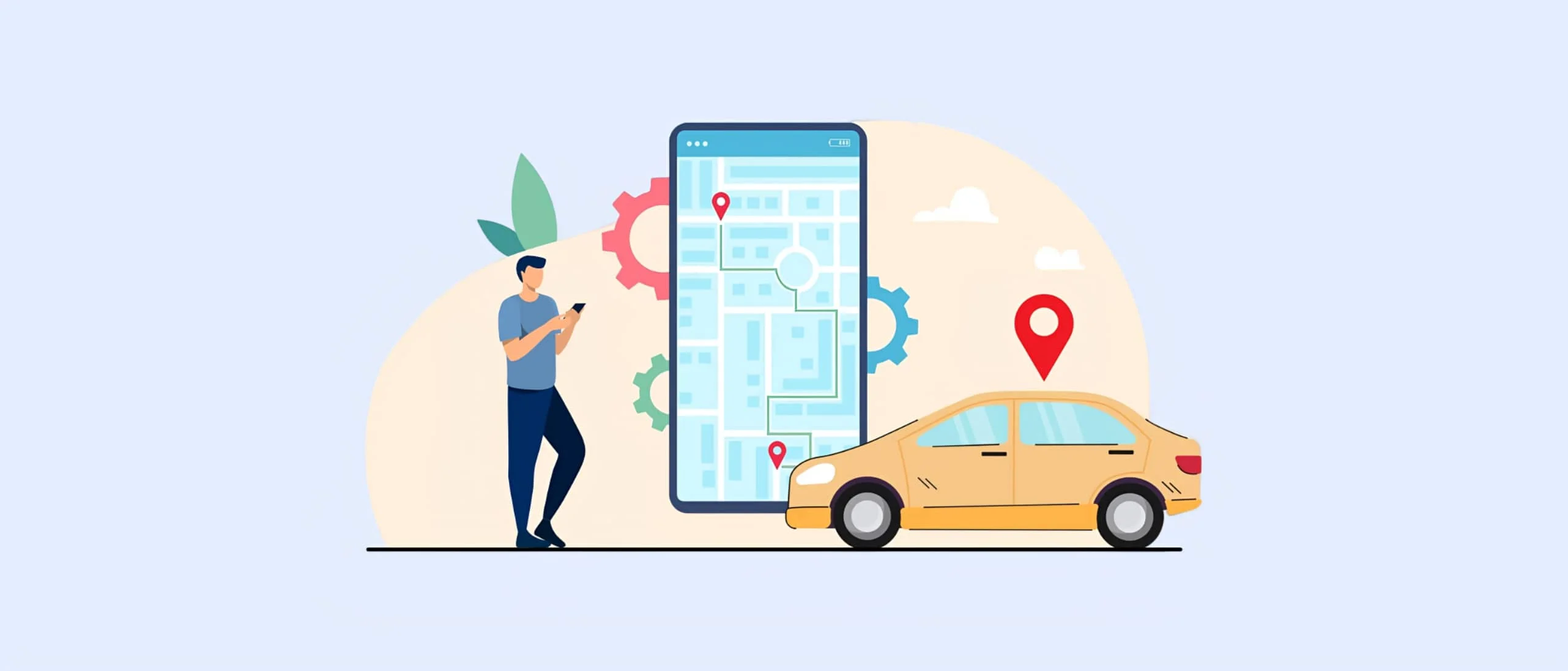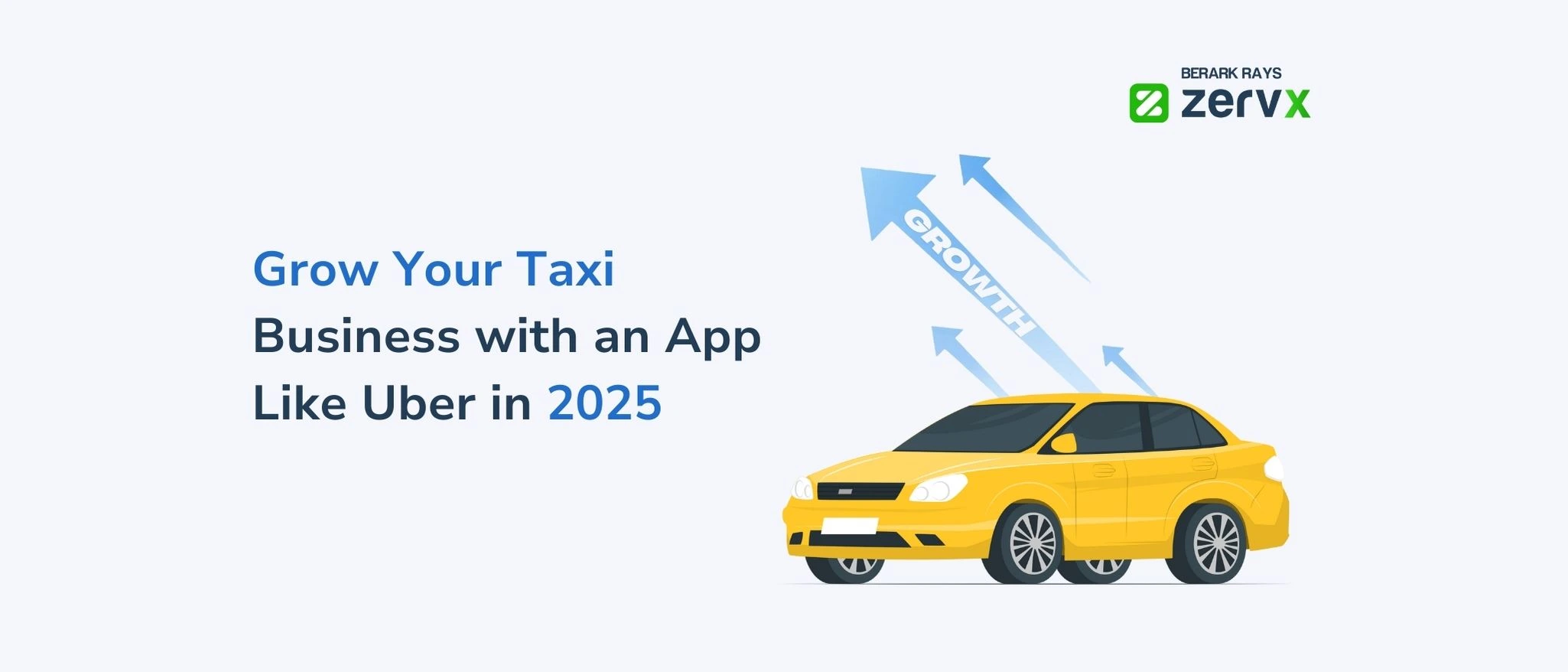The Rise of Taxi Apps: A Revolution in Urban Transportation
The advent of taxi apps has transformed urban transportation, providing riders with convenient and affordable services.
John Sibin Raj
July 24, 20239 min read
How Uber Estimates the Cost of a Ride
Uber’s Price Estimator Tool
What Makes Uber Fare Estimates So Accurate?
Why Accurate Fare Estimates Matter
What It Takes to Build an App Like Uber
How Much Does It Cost to Build an Uber-Like App?
How Long Does It Take to Build?
Your Uber-Like App is Within Reach
Uber is a name almost everyone around the world knows. It started with humble beginnings as a small startup in 2009, founded by San Francisco entrepreneurs Travis Kalanick and Garrett Camp. Over time, it has grown into a giant in the ride-hailing industry and, in fact, in almost every on-demand transportation sector.
Whether you've taken an Uber ride, are thinking about using one, or have an idea to start your own taxi company like Uber, this article has something for you. Not sure if you should trust it? Well, here’s a quick summary of what you'll learn in this blog:
Don’t waste any more time—let’s dive right into the details you’ve been searching for!
Want your own Uber-like app? Get in touch today and launch in just a few days!
When you open the Uber app and request a ride, you’ll see a price estimate. This estimate isn’t a random guess, but rather is calculated using a combination of factors.
Pickup location and destination: The distance between your current location and your destination.
Time and traffic: Fares are higher if you’re traveling during peak hours.
Vehicle type: UberX, UberXL, or luxury options like Uber Black have different prices.
Demand and supply: When there are more people requesting rides than drivers, the price goes up.
For example, let’s say you’re in a busy city and it's raining heavily. Lots of people are requesting rides, and there might not be enough drivers to keep up. That’s when surge pricing kicks in.
Uber’s app and website include a tool that calculates a price range for your ride. You just enter your starting point and destination to see an estimate. You can try it out on their price estimator tool.
Here’s how to check your ride cost before booking:
1. Open the Uber app or visit their website.
1. Enter where you’re starting and where you’re going.
1. Pick a ride type and look at the estimated price range.
Sometimes, your ride costs more or less than the estimate. Things like traffic, route changes, or driver availability can affect the final price.
Uber uses an intelligent algorithm to determine your location, the driver’s location, and the best route to get to you. T aking into account traffic conditions, time of day, and nearby events, the app gives you an almost instant price estimate.
Let’s say you’re heading to the airport. Uber’s system will check for the quickest route, any road closures, and how many drivers are nearby. The result? You get an estimated fare that’s close to what you’ll actually pay.
Nobody likes surprises when it comes to money. Having a reliable estimate system builds trust with users. For drivers, it helps them plan their trips and make the most of their time on the road.
Imagine getting into a car and finding out the fare is double what you expected. That’s a bad experience, and it’s something your app should avoid.
To build an app like Uber, you need more than just a great idea. It involves understanding what makes ride-hailing services successful and you need to create something that’s easy to use and works smoothly for riders, drivers, and the people managing it. At its heart, a ride-hailing app connects people who need a ride with drivers who are ready to pick them up. But there’s a lot going on behind the scenes to make it all work.
For riders, the app should make it simple to book a ride, track their driver, and pay without any trouble. Drivers need features that help them accept trips, navigate, and see what they’re earning. On top of that, the admin side needs tools to manage users, track trips, and solve problems quickly.
If your app becomes popular, it needs to grow with your users. That means using strong technology and reliable systems to make sure it doesn’t crash or slow down when more people join.
| User Type | Features | Description |
|---|---|---|
| Riders (Passenger App) | Easy Sign-Up | Quick and simple ways to create accounts using email, phone, or social media. |
| Ride Booking | Choose the ride type, set pickup/drop-off points, and confirm the trip easily. | |
| Live Tracking | See the driver's location and estimated arrival time in real time. | |
| Payment Options | Multiple ways to pay, including cards, wallets, or cash. | |
| Trip History | View past trips, payments, and receipts. | |
| Safety Features | SOS button, driver details, and ride-sharing option for added security. | |
| Drivers (Driver App) | Trip Management | Accept or decline ride requests with a single tap. |
| Earnings Overview | Track daily, weekly, and monthly earnings. | |
| Navigation | Built-in maps to find the best routes to the destination. | |
| Driver Ratings | View rider feedback and ratings for better service. | |
| Availability Status | Toggle between online and offline modes easily. | |
| Admins (Admin Panel) | User Control | Add, remove, or manage passengers and drivers. |
| Data Insights | Monitor trips, earnings, and user activity with detailed reports. | |
| Support Tools | Resolve complaints and handle queries quickly. | |
| Trip Monitoring | Track ongoing trips for safety and efficiency. | |
| Promotion Management | Create and manage discounts, offers, and loyalty programs. |
The design of your app needs to be clear and simple to use. People should be able to book rides or manage trips without confusion.
The app’s back end handles all the heavy lifting, like storing data and processing ride requests. It’s essential to have reliable servers and scalable systems to keep everything running smoothly.
Several things determine the cost of creating an app like Uber:
Platform: Will you build it for iOS, Android, or both?
Features: Basic apps are cheaper, but advanced features like AI routing add to the price.
Developer Location: Developers in regions like South Asia often charge less than those in North America or Europe.
Building a basic version of a ride-hailing app might cost between $50,000 and $200,000. If you want advanced features, the cost can go up to $400,000 or more
Launching the app is just the beginning. You’ll also need to budget for regular updates, bug fixes, and server costs. Plan to spend 10-20% of the initial development cost every year.
The time it takes to build an app depends on its complexity. If you’re focusing on an MVP (Minimum Viable Product) with only the core features, it usually takes around 3 to 6 months. However, if you're looking to develop a full app with all the bells and whistles, it can take between 9 to 12 months or more.
Here’s a rough idea of how long each step takes:
Design: 1-2 months
Development: 4-8 months
Testing and Launch: 1-2 months
Building an Uber-like app doesn’t have to be complicated. With the right support and technology, you can create a platform that’s simple, effective, and ready to meet the needs of both riders and drivers.
Our white-label taxi software is the perfect solution to help you create your own Uber-like platform quickly. Whether you’re starting a new venture or scaling an existing business, our solution is designed to grow with you.
Want to learn more? Contact us today, and let’s bring your ride-hailing vision to life!
How Uber Estimates the Cost of a Ride
Uber’s Price Estimator Tool
What Makes Uber Fare Estimates So Accurate?
Why Accurate Fare Estimates Matter
What It Takes to Build an App Like Uber
How Much Does It Cost to Build an Uber-Like App?
How Long Does It Take to Build?
Your Uber-Like App is Within Reach
Blog

The advent of taxi apps has transformed urban transportation, providing riders with convenient and affordable services.
John Sibin Raj
July 24, 2023
Taxi booking software is an application used to offer a platform for transportation hailing where clients can easily hire cars and get an appropriate driver ready to take them to the desired destination.
John Sibin Raj
June 22, 2024
Your taxi business can’t afford to fall behind. Let’s be real 2025 is here and if your taxi company still relies on phone calls, paper schedules, or basic GPS tools, you’re already losing customers fast.
John Sibin Raj
Jan 31, 2025